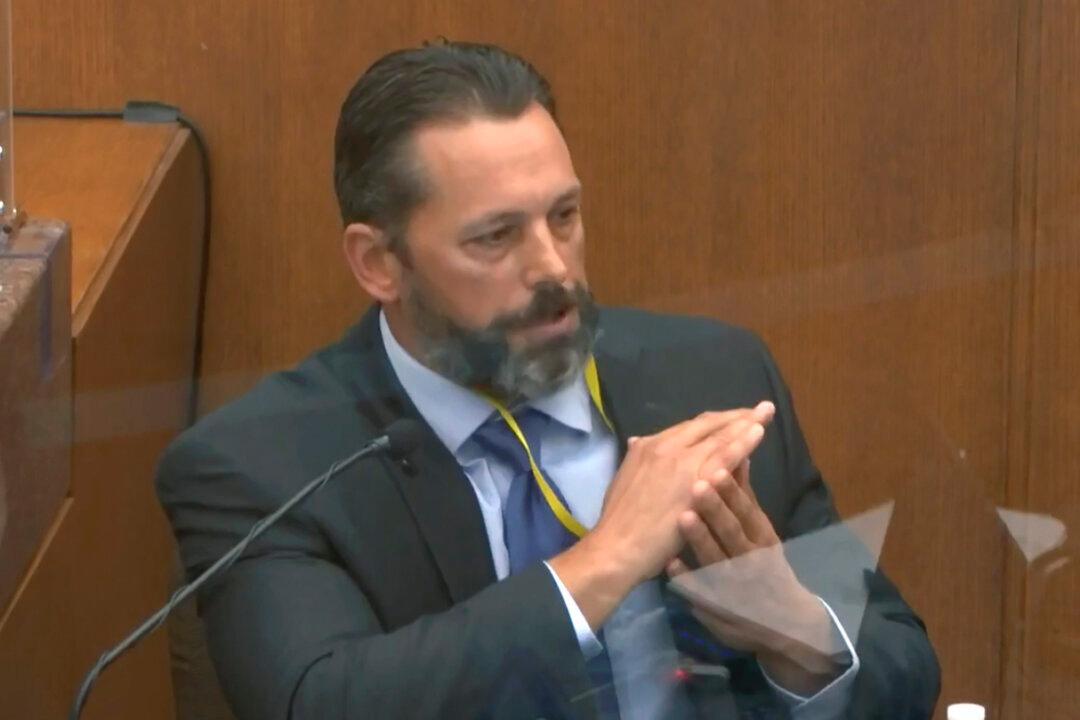Derek Chauvin, the former Minneapolis police officer charged with murder in the death of George Floyd, received training years ago on how to restrain combative suspects with a knee, but that training instructed officers to “stay away from the neck when possible,” the lieutenant who trained Chauvin testified on April 6.
Department use-of-force instructor Lt. Johnny Mercil became the latest member of the Minneapolis force to take the stand as part of an effort by prosecutors to dismantle the argument that Chauvin was doing what he was trained to do when he put his knee on Floyd’s neck on May 25, 2020.





